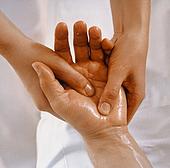Stress is a common condition experienced by everyone at some point in time. Common stress triggers include: feeling overwhelmed and overloaded, money, relationships, children, health concerns and time constraints.
Meditation is an effective stress-reduction practice as it teaches people how to let go of daily worries. Studies have shown that even as little as 15 minutes of meditation per day can dramatically improve one’s state of relaxation and decision-making process.
Stress-Proof Your Brain: Meditations to Rewire Neural Pathways for Stress Relief and Unconditional Happiness (Sounds True) is an audio course developed by Rick Hanson designed to teach listeners how to free themselves from chronic stress and experience greater happiness day to day.
How Stress Affects Our Health & Wellbeing
 Stress affects our physical and mental wellbeing in several ways. One of the leading effects of stress is depression. Over a quarter of all prescriptions written each year in the United States are for anti-anxiety or anti-depressants. Many people develop coping mechanism for stress and depression through a dependance on drugs, alcohol, or food.
Stress affects our physical and mental wellbeing in several ways. One of the leading effects of stress is depression. Over a quarter of all prescriptions written each year in the United States are for anti-anxiety or anti-depressants. Many people develop coping mechanism for stress and depression through a dependance on drugs, alcohol, or food.
Physiological reactions to stress are just as harmful. Stress increases the body’s level of adrenaline and other hormones, which in turn reduces the number of T cells—or the immune system’s protectors. This compromises the immune system’s ability to protect the body from illness or disease. Stress hormones also lead to gastrointestinal problems, such as ulcers. Increased levels of adrenaline boosts a person’s likelihood of developing heart disease as the body tries to adapt to the changes in blood pressure. Furthermore, non-insulin dependent diabetics with increased levels of stress hormones often have to rely on insulin.
Other physical problems stemming from stress include: strokes, arthritis, back problems, bronchitis/emphysema, migraines, and premature aging.
Meditation an Effective Stress-Reduction Tool
There is an obvious link between an individual’s state of mind and the body’s physical condition. Because meditation reduces the body’s levels of stress, it also helps lower a person’s risk for heart disease and other physical dangers. For some people, meditation can relieve pain that accompanies some illnesses.
Click to experience a free meditation > Mind & Body Meditation
Meditation allows more control over one’s mental activities. When a person has a greater perspective on what is really important in life by detaching from the stressful triggers, he or she is allowed a greater state of happiness. Meditation is extremely effective in developing greater levels of concentration, and can help people realize their creativities and life purpose.
Train Your Brain for Happiness
Available as 2 CDs or audio download, Stress-Proof Your Brain: Meditations to Rewire Neural Pathways for Stress Relief and Unconditional Happiness features techniques to strengthen our brains to be more resilient to life’s stresses, allowing listeners to feel more confident and serene in their day-to-day lives. The techniques Hanson shares have been proven effective in their ability to help people adapt their nervous systems.
 Hanson talks about how the body’s natural reflexes against stress (the increase in adrenaline and other stress hormones) actually inflicts more harm than benefit on the body. Hanson discusses more nurturing reactions to stress, as well as:
Hanson talks about how the body’s natural reflexes against stress (the increase in adrenaline and other stress hormones) actually inflicts more harm than benefit on the body. Hanson discusses more nurturing reactions to stress, as well as:
- how individuals can train their memories to soothe their anxious or fearful minds
- how to develop greater feelings of gratitude
- how to replace negative feelings with positive ones.
Stress-Proof Your Brain is for those who have been seeking a positive and effective release from daily worry and stress. Join Hanson as he discusses guided exercises designed to release worry and build upon gratitude, peace, and confidence.




